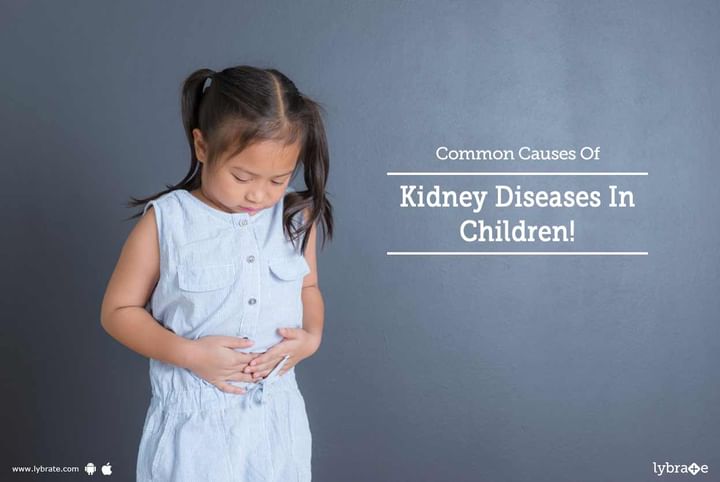Common Causes Of Kidney Diseases In Children!
The main function of the kidneys is to filter blood and remove toxic wastes from the body in the form of urine. The kidneys also help regulate blood pressure and maintain a proper balance of salts and fluids in the body. Kidney problems in children can range from chronic kidney disease and kidney failure to reversible disorders which do not have any long-term effects. Kidney diseases may be caused by many factors.
1. Birth defects
If a child is born with a defect in his or her urinary tract, the risk of suffering from kidney disease is very high. For example, a narrow or twisted urethra can make it hard for the child to urinate and thus increase the risk of infection. Conditions such as fetal hydronephrosis can occur even when the child is in the mother’s womb. This is marked by an enlargement or the narrowing of one or both the kidneys.
2. Urinary tract infections (UTIs)
If a urinary tract infection is left untreated in a child, the bacteria causing the infection can travel upwards into the urinary tract. Once it affects the bladder, the condition is known as cystitis. If this bacteria travels to the kidneys and begins to affect them as well, this results in a condition known as pyelonephritis. This can lead to permanent kidney damage. Unfortunately, it is very difficult to diagnose a UTI in infants and children. Common symptoms to watch out for include bloody or cloudy urine, pain during urination and frequent urination. Infants may also have loose bowel movements.
3. Reflux disorders
In some cases, a defect in the valves between the bladder and the ureters can cause urine to flow backward to the kidneys instead of out of the body. This is known as reflux. It can cause kidney infections and may also cause permanent damage to the kidneys. The good news is that it can be treated and corrected with antibiotics or surgery.
4. Hereditary diseases
Genetic abnormalities can also be the cause of kidney disease. Polycystic kidney disease (PKD) is one such condition that is passed down from a parent to their child. In this case, the abnormal genes cause cysts to develop in the kidneys that replace healthy tissue and impair kidney functioning. Alport syndrome is another hereditary kidney disease.
5. Systemic diseases
Systemic diseases are conditions that do not affect any single organ but affect the entire body as a whole. Diabetes and Lupus are two systemic diseases that can cause kidney disease. In the case of diabetes, the body is unable to regulate glucose levels that in turn damage the kidney cells. Though this is the leading cause of kidney failure in adults, it is not so commonly seen in children. In case you have a concern or query you can always consult an expert & get answers to your questions!



+1.svg)
